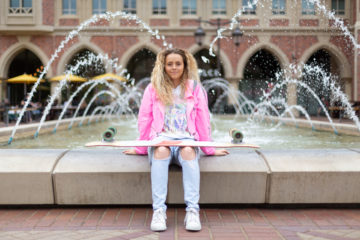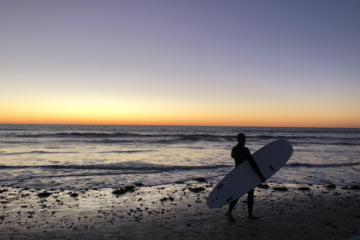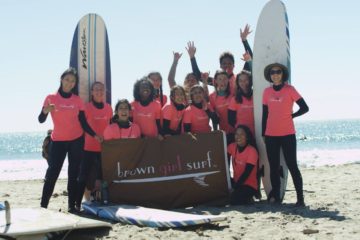Amelia Brodka Soars Toward Gender Equity in Skateboarding
Amelia Brodka still vividly remembers the time she was faced with one of the most important questions of a young skateboarder’s life.
That question of course being: could she recognize Tony Hawk?
“The first time I ever got an email from Tony Hawk, I thought it was a scam,” Brodka laughed. “My gmail flagged it, and he has a really unique email address that wouldn’t really point to it being him.”
The legendary skateboarder Hawk has a famously (or perhaps infamously) well documented history of going narrowly unrecognized by skateboarding superfans in public, stories about which he loves to share on social media.
The stories leave every skate fan determined that if they had the opportunity to connect with Tony Hawk, they won’t miss it like others before them did.
Fortunately for Brodka, she was able to confirm with Hawk’s team what she hoped: Tony Hawk really did want her to participate in the opportunity of a lifetime.
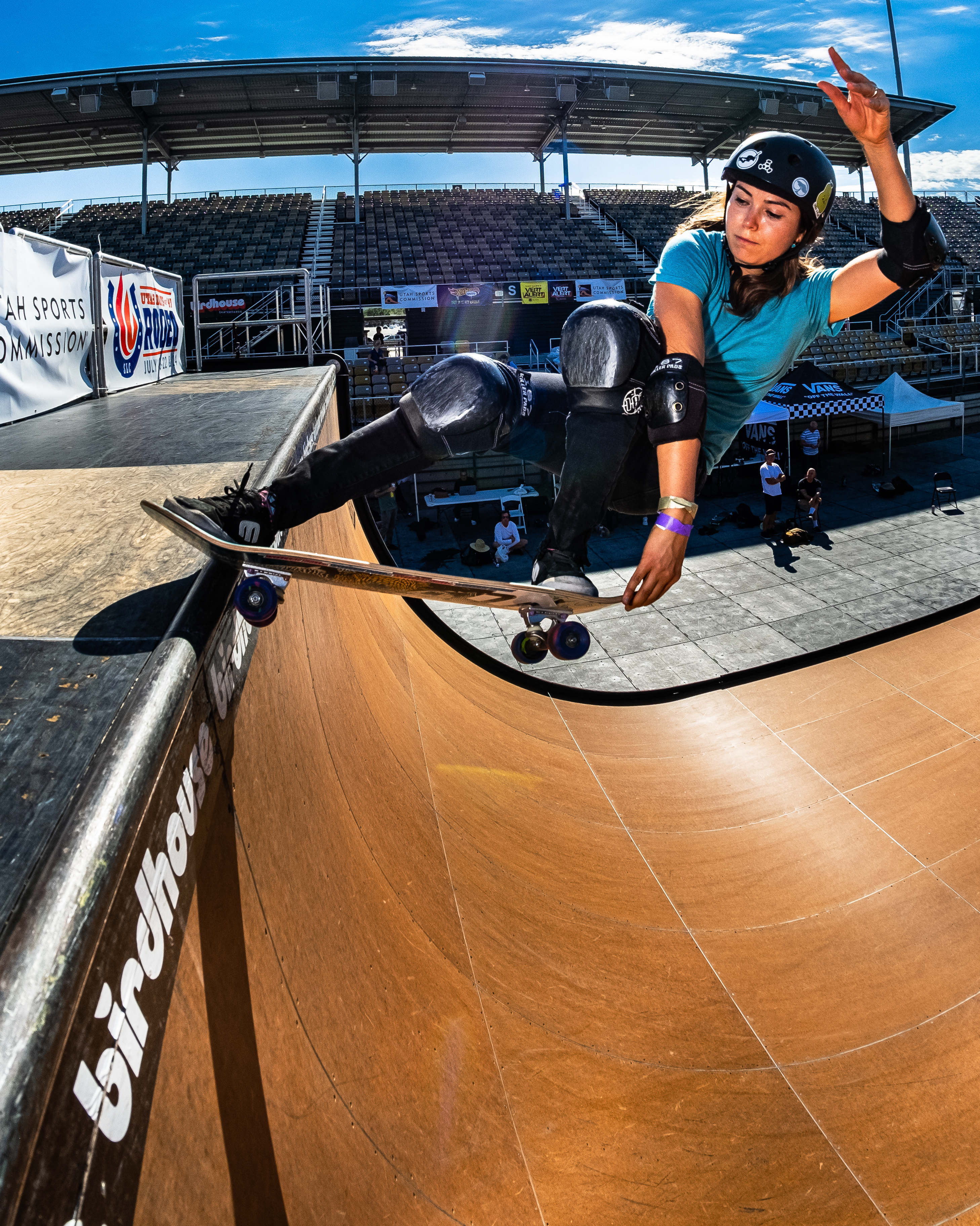
“He was inviting me to skate with him in some demos in New Jersey where my family was living at the time,” Brodka said. “So it was this crazy full-circle opportunity.”
The chance to skate with Hawk, which came mere months after Brodka graduated from the University of Southern California, confirmed one of her greatest hopes.
She was making a huge impact in the skating world, and important people were noticing.
Brodka started skating in 2002 and turned pro in 2009, while attending USC. She was initially inspired to chase a dream of doing so professionally at the age of 12 when she saw women compete in skateboarding in the 2002 X Games.
But when she actually turned pro herself, she realized that skill in skating wasn’t going to be enough on its own. A clear lack of opportunities for women and girls to compete and gain visibility in the sport stacked the odds against her.
“Women across different disciplines really weren’t given fair portrayals in the media,” Brodka said, “And at the time, skateboarding media was really just controlled by a handful of individuals. It was before social media took off so people didn’t really have the opportunity to make themselves visible. They had to go through those gatekeepers.”
Given that success in skateboarding has a great deal to do with visibility, as it pertains to sponsorships and invites to competitions and so on, Brodka knew she needed to take action on behalf of herself and female skaters everywhere.
Fortunately, she knew just what to do. One class at USC had stood out and inspired her to chase the dream of seeing women better represented in skateboarding.
“The professor who was the most influential was Alison Trope, and her media and gender representation class,” Brodka said.
Trope’s influence and assistance helped mold Brodka’s capstone project, a documentary called Underexposed: A Women’s Skateboarding Documentary.
Underexposed didn’t just capture the hearts of USC professors, but the world at large. It ended up being shown and honored at several film festivals, capturing a much wider audience than Brodka could have dreamed. People like Tony Hawk.
And, people like Jess Robledo.
Jess Robledo and Amelia Brodka’s journeys in the world of skateboarding are woven together by undeniable similarities and stark differences.
Robledo also started skating in 2002. But while Brodka’s journey began that year out of excitement and joy, Robledo began skating out of immense difficulty.
“Skateboarding for me became one of my “anti”s,” Robledo said. “My anti-drug, my anti-everything. It was something I connected with after a long period of domestic violence, it was something I picked up and started doing with my kids, and it was something I just couldn’t let go of.”
While not pursuing a career in pro skating herself, Robledo still saw and was heavily impacted by the lack of female representation in the skating community.
“My story is a lot like a lot of women my age, skaters anyway,” Robledo said. “Being the only girl in the skatepark, being the only girl you see skating down the street.”
So when Amelia Brodka and her documentary began to catch fire in the skating world, Robledo found something much needed: other people just like her.
“When Underexposed came out, it was a really valid opportunity to implement myself into this community and be surrounded by like minded people.”
It would launch a partnership that would help change the skating world forever.
Eleven years later, both Brodka and Robledo have made an immense impact on the skating world as individuals.
Brodka is a skating legend, having competed in high-level international championships for nearly 15 years now. She even received an opportunity to represent her home country of Poland in the 2020 Tokyo Olympics, the first edition of the games with skateboarding ever.
Brodka believes skateboarding’s representation at the Olympics will serve as a massive encouragement to youth to pursue their skating dreams, and was honored to be a part of the trailblazing class of skaters that made that a reality.
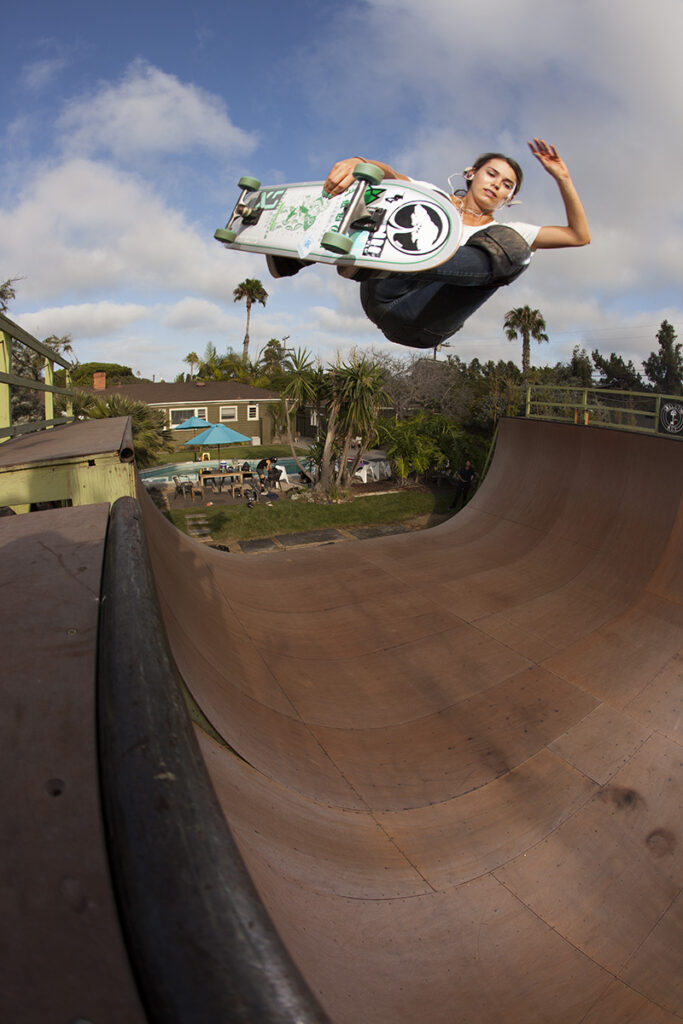
“To be valued societally in that way, it makes it easier to communicate the impact that skateboarding has had on us,” Brodka said. “It makes it easier for others to pursue, whether it’s actual skateboarding or just being a part of the industry, and it’s already created an immense amount of opportunities for people around the globe who are now able to run skateboarding
programs in their countries.”
Robledo has carved out her own niche recycling skateboards and making beautiful artwork.
But it’s what they do together that’s really revolutionizing the skateboarding world.
Founded in 2012, and inspired by Underexposed, Exposure Skate is a nonprofit organization created by Brodka that includes international skating competitions, youth and adult skate & serve clinics, yoga clinics and mental wellness workshops and partnerships with health and wellness companies.
It created a space for female skaters that was severely lacking at the time and has gone on to serve as a platform for some of the most successful women in skateboarding today.
“During our first event, Bryce Wettstein was seven years old, and someone like her didn’t have any other opportunities to pursue skateboarding,” Brodka said. “Seeing her now, she’s about to be 20 years old and she’s still skating in our events. She was also one of the first Olympians. She now volunteers to teach the girls in our youth skate rising program… When she started, she didn’t really have any other place to nurture that passion.”
Wettstein’s Olympic impact, finishing 6th in park for team USA, likely wouldn’t have happened without the opportunity that Brodka trailblazed for girls like her.
It also created an opportunity for Robledo to serve the community of young female skaters that she loves so dearly. Robledo, who has followed Exposure since its founding in 2012, began volunteering for Exposure in 2017 and now works as the program director. It has been deeply fulfilling work for Robledo.
“It gives me a lot of inspiration, and I think through inspiration you find your sustainability,” Robledo said. “We’re not always motivated to do things, but every day I get to do what I’m doing in such a unique way that it continues to just refill my cup.”
She credits Brodka as being a huge reason why Exposure continues to inspire her any many others.
“On and off my board, that woman inspires me and encourages me and empowers me to step into my greatness,” Robledo said. “It’s hard to come up with the right words, but it’s been an incredible privilege and honor to work alongside Amelia Brodka.”
As Brodka continues to blaze the path to gender equity in skateboarding, more and more young women will join her at her side.
But none of them will ever forget how it all started: with a college girl, a skateboard, and a dream.
